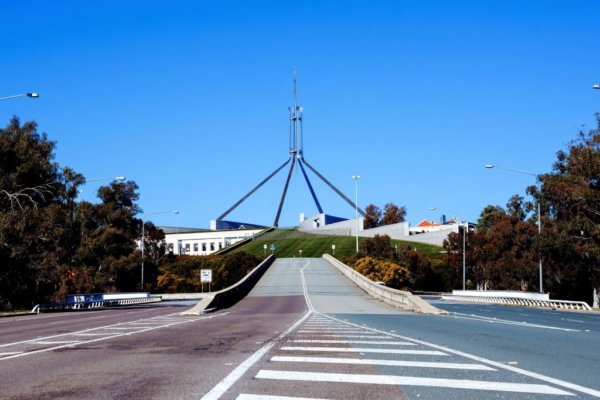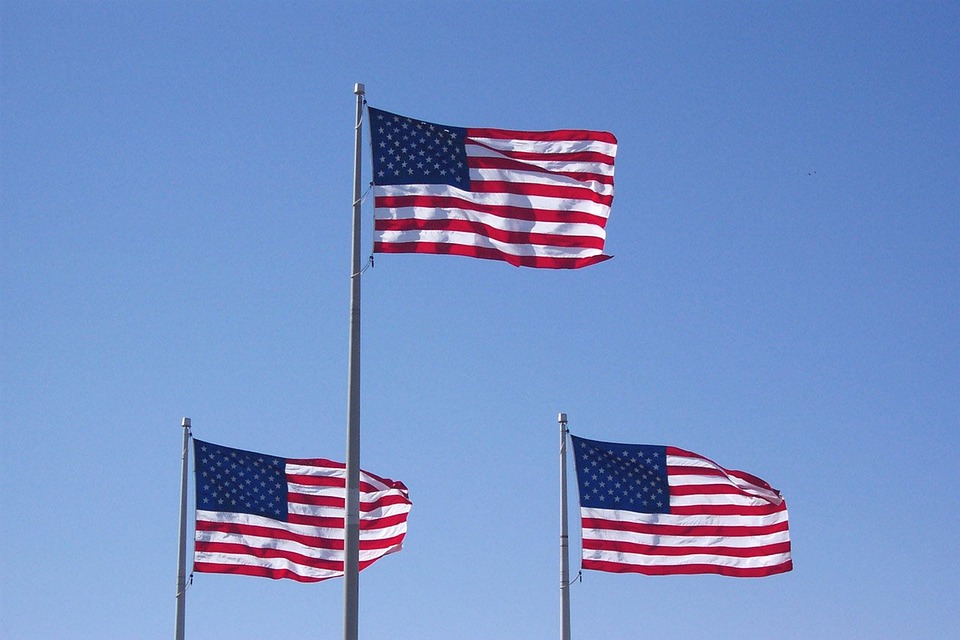Commentary
Australia is a federation, although for decades now it has been hard to notice.
But COVID-19 may have changed everything.
In a functioning federation, like the United States, states revel in competition and distinguishing themselves from each other.
While California appears to be going woke and broke at the moment, Florida is where “woke goes to die” and where increasing numbers of California migrants go to live. This state competition is a consequence of legal structures, but just as importantly, mental attitudes.
COVID is the greatest disruption, short of war, in anyone’s lifetime. One of its consequences might be to change the mindset of Australian premiers so that real federalism becomes reborn.
There are a few green shoots, such as the pitch to Victorian businesses from South Australia’s Treasurer Stephen Mullighan to vacate the high-taxing, sclerotic Victoria to his own state.
Or the bid by Queensland to retain its share of its Commonwealth Grants even though it has massively increased its revenue by increasing coal royalties.
Then you have Victoria increasing its tax levels rather than wind in expenditure, while the new New South Wales administration foreshadows economic prudence, paring expenses, and cancelling plans to borrow.
This divergence was more or less unprecedented pre-COVID-19.
During COVID, premiers did the previously unthinkable and closed borders (or in the case of the island state of Tasmania, pulled up the gangplank) and implemented quite distinct policies.
Suddenly there were “our” people, who lived in our state, and other Australians who were treated like aliens.
This was exemplified in the statement of Queensland Premier Annastacia Palaszczuk that Queensland hospitals were “for our people only,” as she compelled a pregnant woman to fly 610 kilometres (379 miles) to Sydney for a difficult birth rather than allowing her to drive the 88 kilometres from Ballina near the state border to the Gold Coast.
This sense of autonomy was heightened by the ad hoc “National Cabinet” where the premiers dictated to the prime minister, reversing the previous order.

How the Federal Structure Was Gradually Eroded
Originally, Australia had a functional federation comprised of six independent colonies, which each raised enough taxes and charges to support themselves.
To ensure a national economy, states surrendered the power to levy customs and excise to the federal government, along with the power of the pre-eminent right to make legislation in a number of areas listed under Section 51 of the Constitution.
The economies did continue as before with the state’s levying income taxes, and also charging for services, transfers of assets, and taxing land.
It didn’t take long for the financial strengths of the states, however, to migrate to the Commonwealth, along with the power to levy income tax.
Over the next century, this led to a gradual shuffling and reshuffling of taxes between levels of government and the complete abandonment of income tax by the states. The situation now sees half of a state’s budget come from the Commonwealth.
Why the Current System Needs A Revamp
Federations work well, particularly in large, decentralised countries. They should work better than unitary systems for a number of reasons.
First, decisions are made closer to the people directly affected who also have access to the best on-the-ground information.
Second, those who raise the money are responsible for spending it, encouraging thrift and efficiency.
Third, they allow for experimentation and quick transfer of lessons learned.
And fourth, they provide redundancy so that a failure in a part of the country does not become a catastrophic failure by being a failure of the whole. (To understand this point, imagine if Daniel Andrews was responsible for the lockdown policy of Australia, instead of Victoria, during the pandemic.)

These are undoubtedly some of the secrets of success to the world’s dominant economy—the United States of America.
But with rare exceptions, Australians to date have never been keen on full-blooded federalism, although there have been exceptions.
One was in the 1970s and 1980s when Queensland and Tasmania vehemently argued against federal intervention in how they managed their environmental resources which included the Great Barrier Reef and Fraser Island in Queensland, and the Gordon-below-Franklin River in Tasmania.
Queensland also led the way in reducing state tax to attract interstate migration when it abolished estate or death duties.
At the same time, it spurred whole new industries like coal mining and aluminium smelting and moved Queensland from hillbilly status to Australia’s fastest-growing state.
Western Australia has always been partial to states’ rights and was only a reluctant member of the original federation. This is partly explained by its isolation from the rest of the continent—Perth is closer to Singapore and Jakarta than to any other Australian capital city.
There have also been attempts by the Commonwealth government to return some of the taxing power to the states.
Both of our Malcolm prime ministers—Fraser and Turnbull—offered to return some proportion of income tax to the states. The premiers declined, preferring to have the option of blaming Canberra when budgets wouldn’t stretch to meet unrealistic electoral expectations.

Change How GST is Distributed for Long Term Prosperity
But now there has been a COVID-induced paradigm switch and with fortunes diverging, it is time for the states to revert to a functioning federalism.
This should be encouraged by the federal treasurer because it is part of the puzzle to improving productivity.
While premiers are unlikely to take back income-taxing powers there is one simple measure that would encourage competitive federalism—abolish the way the Commonwealth Grants Commission allocates the proceeds of the 10 percent GST charged on Australian goods and services (circa 25 percent of state budgets).
Now the Commission acts like a handicapper, giving less to the most economically successful states so it can give more to the less successful—a perverse reflection of Aussie mateship, or maybe just the fact Australians are equalitarians (which might explain why two premier sporting events, the Melbourne Cup and the Stawell Gift, are also handicapped).
A simple change such as distributing the GST on a per capita basis would be a carrot for the better-run states, such as Western Australia, Queensland, and New South Wales, and a stick for South Australia, Victoria, and Tasmania.
And if it leads to an exodus of the best citizens from the worst-run state, Victoria, to the rest of the country, that would be a net benefit to everyone.
COVID’s changed the mindset. Release economic responsibility and the federation to do the rest.
Views expressed in this article are the opinions of the author and do not necessarily reflect the views of The Epoch Times.


















































